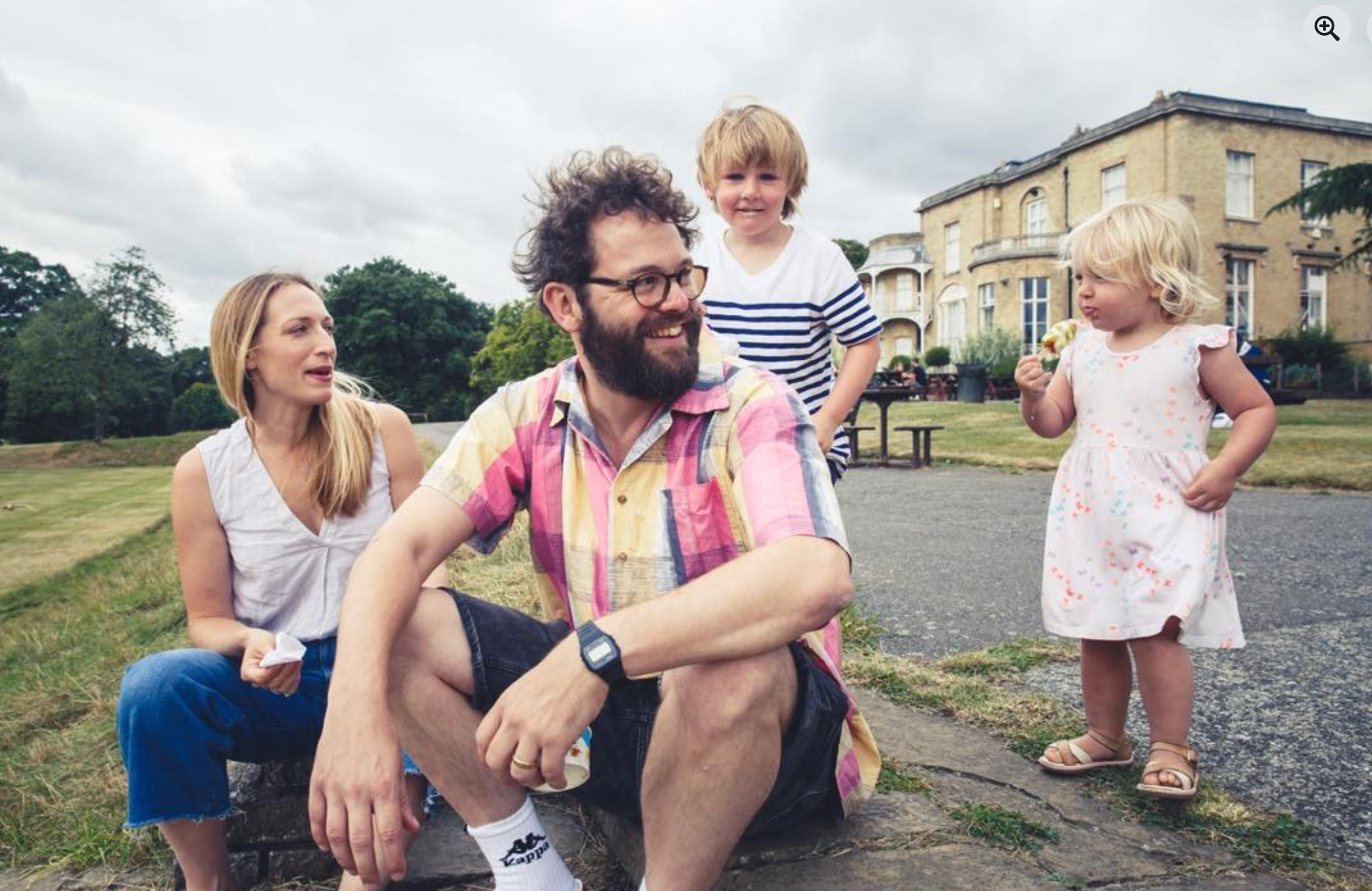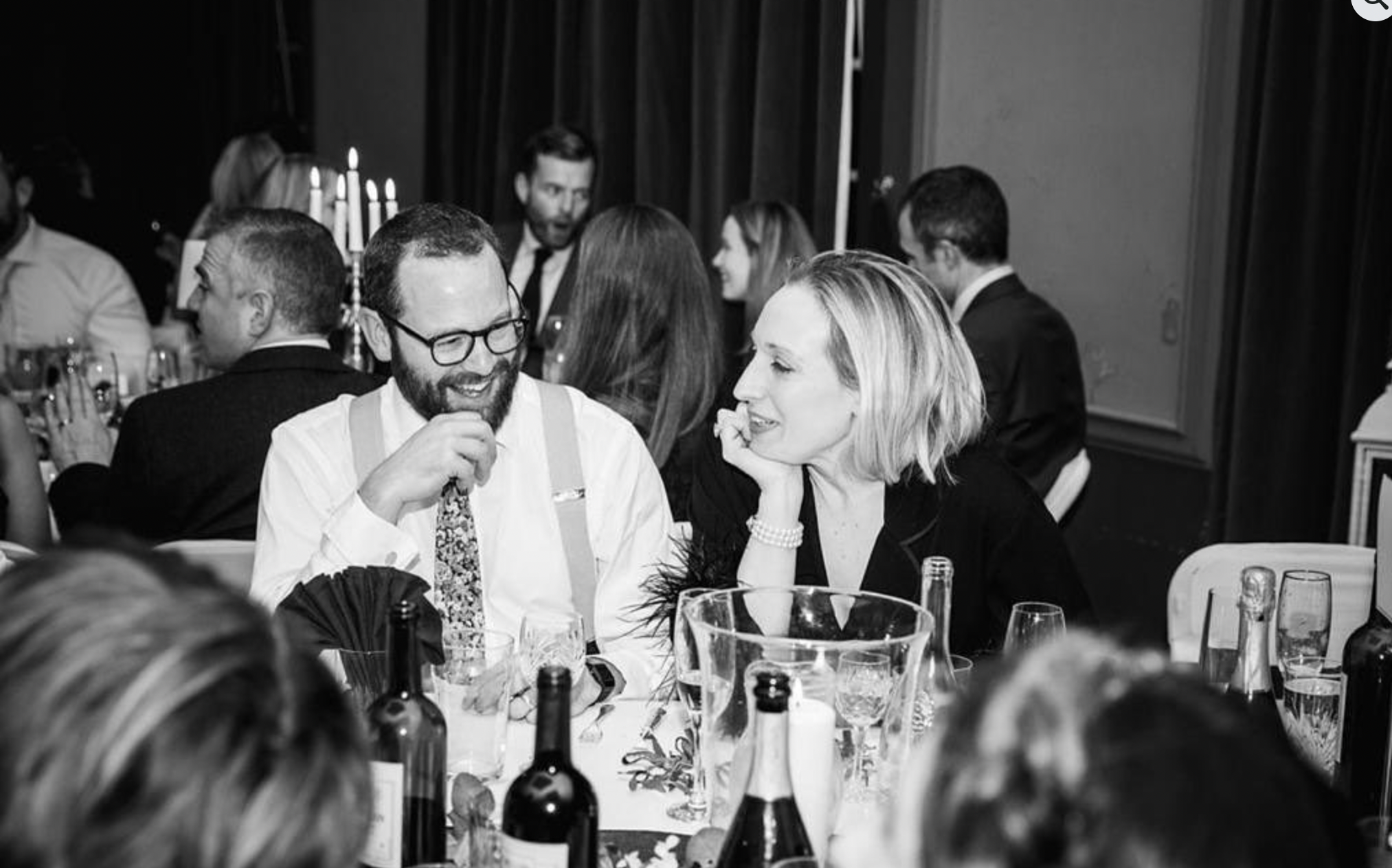What it’s like to live with cancer – when it’s your wife who has been diagnosed
Writer Josh Burt recounts what happened when his wife, Hannah, was diagnosed with bladder cancer – and how he tried not to fall apart

If there’s a correct reaction to your wife telling you she has cancer, I’m still not sure what it is. Tears? Fainting? Complete denial? One evening in February this year, it was my turn to find out. “I’m so sorry,” Hannah says, as if she’s somehow “caught cancer” on purpose.
She’s still shell-shocked. I’m not sure I’ve taken a breath; I feel numb. I instinctively put my hands to my temples, applying pressure as if I’m trying to reboot my brain. She doesn’t seem ill at all. She had an appointment with the urologist after spotting a tiny bit of blood in her wee, and we thought nothing of it. But now she has bladder cancer. The kids are downstairs waiting to be fed; we don’t have much time to talk.
“So... like, you mean, definitely? They don’t need to...?” I say, trailing off. “When?” I add, for further confusion – because let’s be honest, “When?” doesn’t make a whole lot of sense in this context. When what? When did this happen? “When?” as in “How long have you got?”
In the weeks following this clunky exchange of information, I’ve realised that nailing the appropriate response to someone telling you they have cancer really doesn’t come naturally to many of us.
“S***! The beans!” I say suddenly, remembering the saucepan on the hob downstairs in the kitchen. The side dish for the kids’ next culinary adventure. I’ve got to stop them coagulating into an inedible mush (the beans, not the kids). They’re 10 and seven (the kids, not the beans) and I’ve no idea what we’ll tell them. We hug each other.
“Everything’s going to be fine,” I say, even though I wouldn’t confidently swear that in a court of law. Everything might not be fine at all; everything might be awful. My wife has cancer.
We somehow navigate the evening routine of dinner/bath/bedtime as if the world hasn’t just been knocked off its axis. I talk to the kids about whatever nonsense we talk about, but it’s through a fogginess; I feel like I’ve got sudden-onset tinnitus – the shock of bad news has muffled everything around me and now there’s just a high-pitched hissing sound where rational thought should be.
My wife and I occasionally catch one another’s eye as if caught in a conspiratorial web. She has cancer, I keep reminding myself. We’re in our forties, and my wife Hannah, whom I love more than anything in the world, has cancer. This categorically wasn’t supposed to happen.
“Have you told your parents?” I ask later, once the kids have gone to sleep.
“I’ll do it tomorrow, I don’t want to upset them before bedtime,” she says, thoughtfully.
I nod in sage agreement, desperately attempting to appear stoical. Styling it out, even though I’m fully aware that I’m fraying at the seams. I then burst into tears and don’t stop crying for a good while after.
Over the next few days, the floodgates remain very much ajar. In an ideal world, I’d be supporting Hannah through the early days of her cancer ordeal like I’m channelling the titan Atlas holding up the heavens. But instead, I find myself weeping in secret between Teams meetings for work, and crying mid-run on a treadmill, thankful to be sweating enough that no one would guess.

And though I’m conscientiously attempting to mask my sorrow from the kids (whom we’ve chosen to keep in the dark), some of the noises emanating from my office must surely be a massive giveaway – honking, squealing, occasional howling.
One morning I splutter “What’s happening?” over and over again, from nowhere, as if attempting to break the fourth wall in search of divine intervention. The whole thing feels insane and my emotions are running riot.
What’s worse is that, throughout this barely concealed meltdown, I’m increasingly aware that I’m not the one who’s ill. This is her affliction, not mine. She’s the one having to go into battle against her body.
Yet whenever I attempt to figuratively fix my mascara and reapply my war paint, along comes another emotional trigger to knock me down. A song will come on (big shout out to “No More I Love You’s” by Annie Lennox, that absolutely floored me), or suddenly the word CANCER will appear in multiple headlines. Every time I look at the kids, I have premonitions of them being lumbered with the parental short straw for the rest of their lives. I see photos of Hannah and it feels like she’s already a memory.
How to care for yourself when someone you love has cancer
Be mindful of yourself. This is happening to you, too, and you can’t help somebody when you’re drowning yourself, so being able to talk to people and express how you’re feeling – whether it’s friends, family or professionals – can be really beneficial.
Try and get a clearer picture. For many people, thinking about what’s going to happen can be comforting. You can discuss what to expect together, and get a sense of what the next few weeks/months are going to look like.
Don’t hide your emotions. By shutting that part of you down, you only isolate yourself. Like all challenges in life, you meet it together – be angry together, be sad together, be frightened together. Go through that process as a team.
(Advice from Joe Cleaver, head of counselling and wellbeing at We Hear You)
The whole thing reminds me of how it was when we found out Hannah was pregnant (over 10 years ago). Suddenly, babies appeared to be everywhere. You’d not really noticed them before, but now all there was in the world was babies, babies, babies. You couldn’t move for them. And this is like that, but with morbid thoughts and intense sadness instead of glorious newborns.
Challenging scenarios play out in my head – visions of Hannah, months/years down the line, hollowed out, gasping and frail, having been blitzed by chemotherapy, or lying withered on her deathbed clutching my hand and lamenting that we never got old together.
Since her diagnosis in February she’s had an operation to remove two tumours from her bladder, and now we’re in the hinterland – waiting for information on what stage, what treatment, what’s next, and whether the various holiday destinations we’ve found over the years might now become the backdrop to unhappy future pilgrimages.
I think about the prospect of her not being at the other end of the sofa or on the other side of the bed. I think about the plans we’ve made for our home/future, or the times I’ve asked her to bear with me while I spend weeks working fruitlessly on script ideas, promising her that one of them will pay off eventually (still waiting on that) and how none of that means anything if she’s not here to enjoy the spoils. I think about how we’ve perfected the mundane ballet of parenting without ever missing a step, and how I can’t possibly do any of it without her. We’ve too many loose ends to tie up; this can’t end now.
“I promise I won’t be doing this the whole time,” I insist pre-emptively as I burst into tears for the umpteenth time. “I just need to get it out of my system.”
She laughs, and hugs me again. “You’ll be OK,” she says.
Christ, I hope so.
Join our commenting forum
Join thought-provoking conversations, follow other Independent readers and see their replies
Comments

Bookmark popover
Removed from bookmarks